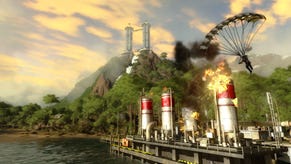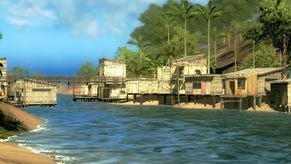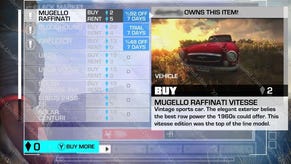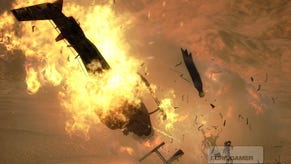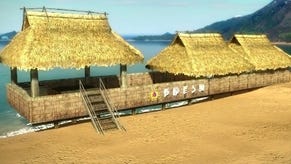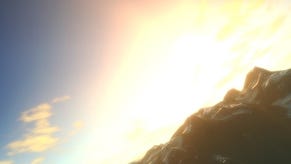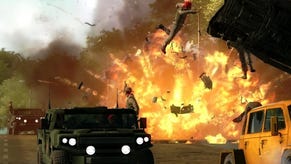Just Cause 2
Jump for joy.
Rodriguez is working for a US agency, initially on a job to confront his boss, who has gone rogue on the island, and later on to overthrow the dictatorial regime that has the island's inhabitants in its grip (although nobody actually bothers to ask the islanders if they're unhappy with the arrangement). The game's titular theme of justice and social redemption sits somewhat awkwardly with the systems it clothes, where even the destruction of giant wind farm turbines - surely an important power source to the local farmers - is rewarded with chaos points regardless.
Nevertheless, the structural conceit of chaos is sound, ensuring that almost every action in the game drives the story along. However, the gauge that unlocks new missions and charts the demise of the country moves along at a painfully slow rate, so that even taking down a sizeable military base has little discernible effect.
Which brings us to the other half of any critique of an open world game: the missions and structured play that inhabit the wider playground. Here Just Cause 2 is a less enthralling proposition. There are just a handful of core story missions for the agency for whom Rodriguez works, unlocked sequentially every few hours as you gain enough chaos points. As a result, the vast majority of your missions are delivered by one of the three factions on the island looking to overthrow the government, all of whom you ally yourself with.
There are moments of brilliance, such as the mission in which you stumble across a smaller island, off the mainland's coast, which is home to 50 or so octogenarian Japanese soldiers, unaware the Second World War ended 60 years ago and as a result hostile to any visitor. However, too often the game falls back onto established mission patterns, especially with regard to taking over new strongholds for each of the factions. These escort missions all take the exact same form, tasking you to guide an NPC through a hostile base, before turning a mounted gun against the base's commanding officer.
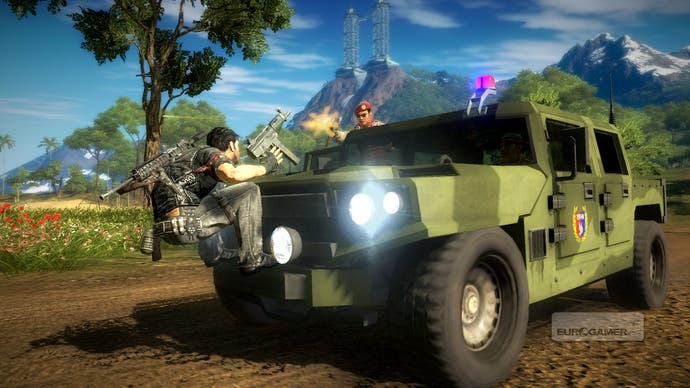
12 hours in, unlocking new missions becomes something of a grind, a feeling exacerbated by increasingly lacklustre objectives which ramp up the accuracy and potency of enemies without providing quite enough set-piece spectacle to make every assignment unmissable. The island grows over-familiar and you tire of identikit villages filled with the same palette of assets, factors that turn the initial thrill of exploration into a mild chore, with few novelties to look forward to.
Every settlement on the map has its own completion percentage, registering how many of its hidden items you've found and destructible assets you've blown up. As the game progresses, the map markers seem less like pinpricks of potential adventure, and more like a litany of unfinished business, measured in the most exact terms imaginable. Whether the to-do list is compelling or exhausting depends on your disposition and drive, but for most, enthusiasm will peter out long before everything is ticked off.
But to dwell for too long on the long-term niggles would be to do Just Cause 2 an injustice. Treat its story and delivery as a low-rent thriller and you'll give yourself the freedom to enjoy the world, and your freedom within that world, unfettered. One of the most technically accomplished games around, Just Cause 2 succeeds in delivering both the best-looking and most pleasant open world to explore and some of the most thrilling and diverse ways of moving through it. Its thrills are intense and, for the first few hours, come fast and dizzying, dulling only when you start to see the dry order that lies behind the chaos.

